FORWARD OPERATING BASE KALSU, Iraq - Two Iraqi poultry farmers received 3,000 chicks each April 27 in a bid to jump-start their industry in Hawr Rajab, a rural community south of Baghdad.
The farmers, Mohammed Hussein and Amman Kameers, accepted the chicks from the 2nd Brigade Combat Team, 3rd Infantry Division and the Baghdad-7 embedded Provincial Reconstruction Team.
"It's meant as a start-up packet," said Mike Stevens, the ePRT agriculture adviser. "It's just to cut back on their input costs so they can make a profit and become self-sustaining."
Poultry farming in Hawr Rajab, once a thriving industry, suffered at the hands of insurgents. Stevens said insurgents came to the area and stole chickens and destroyed chicken coops as a way to threaten the farmers.
"We had a lot of losses," said Sheikh Majid Wiese, chairman of the local farmers union. "Since we started working with the (Sons of Iraq) and coalition forces, we've gotten rid of those insurgents. Now we're gearing toward agriculture."
Distributing chicks to farmers is just one part of the program, said Stevens. In the coming months, the 2nd BCT and the ePRT will distribute feed and more than 12,000 egg-laying chicks to Hawr Rajab farmers. They are also working to secure funds to complete refurbishment of the al-Ra'ad Poultry processing plant in Hawr Rajab, which could provide much-needed jobs to the region.
Increased capacity in poultry farming is intended to have a trickle-down effect in the local economy, Stevens said. Hatcheries in Baghdad will be able to sell more chicks to farmers, who in turn can supply more poultry products to local markets.
"Providing these chicks will help to increase our capacity about 25 percent," said Rarad Abd Jalel Rashed, a poultry representative of the farmers union. "If we can get up to 50 percent, we will be able to be on our own and not need any assistance from anybody else."
(Sgt. David Turner serves with 2nd BCT, 3rd Inf. Div. Public Affairs Office)
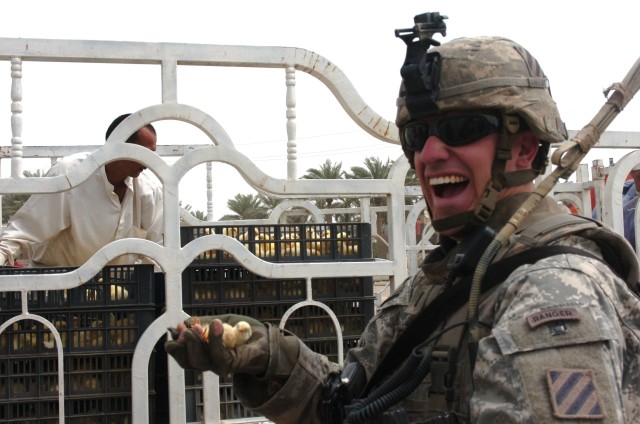
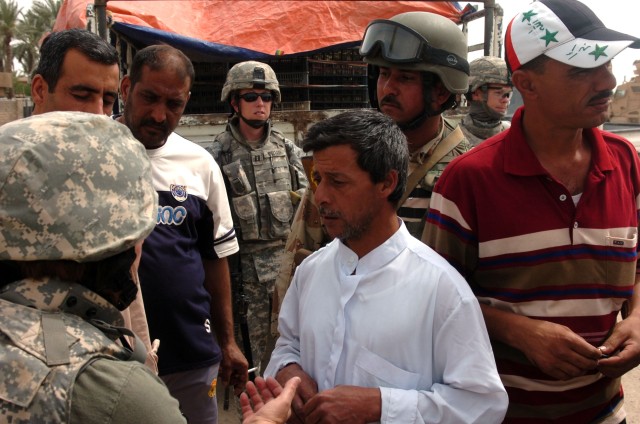
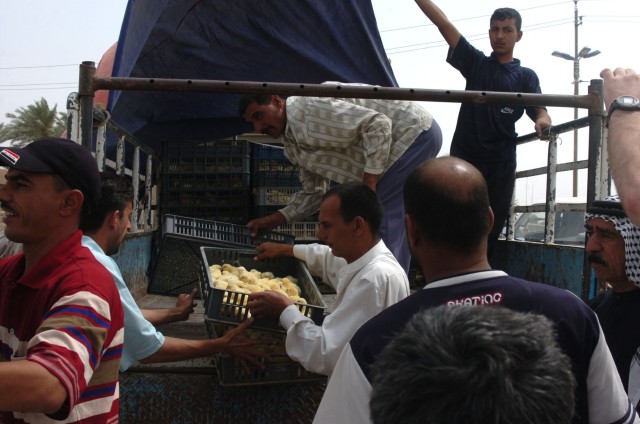
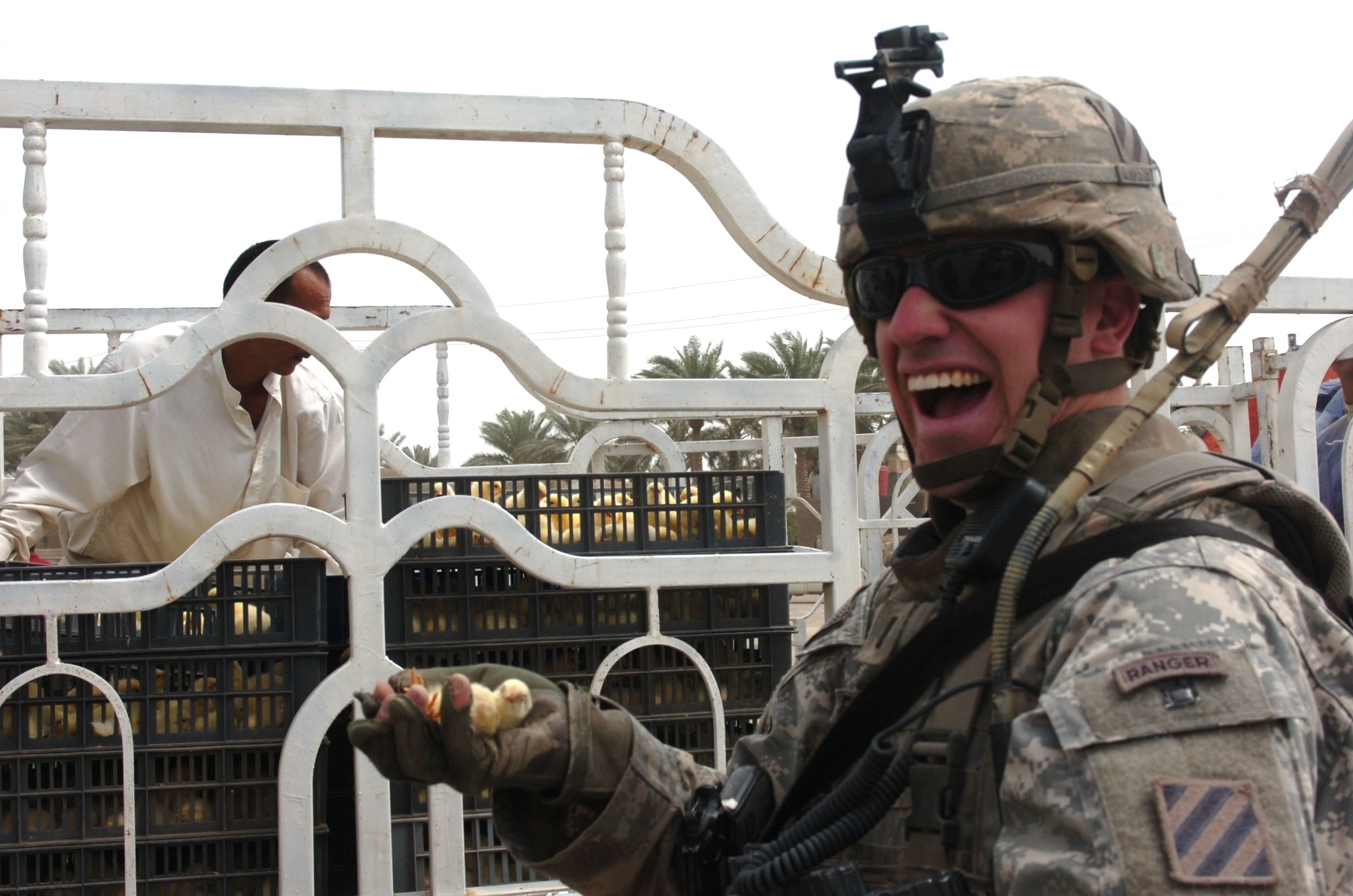
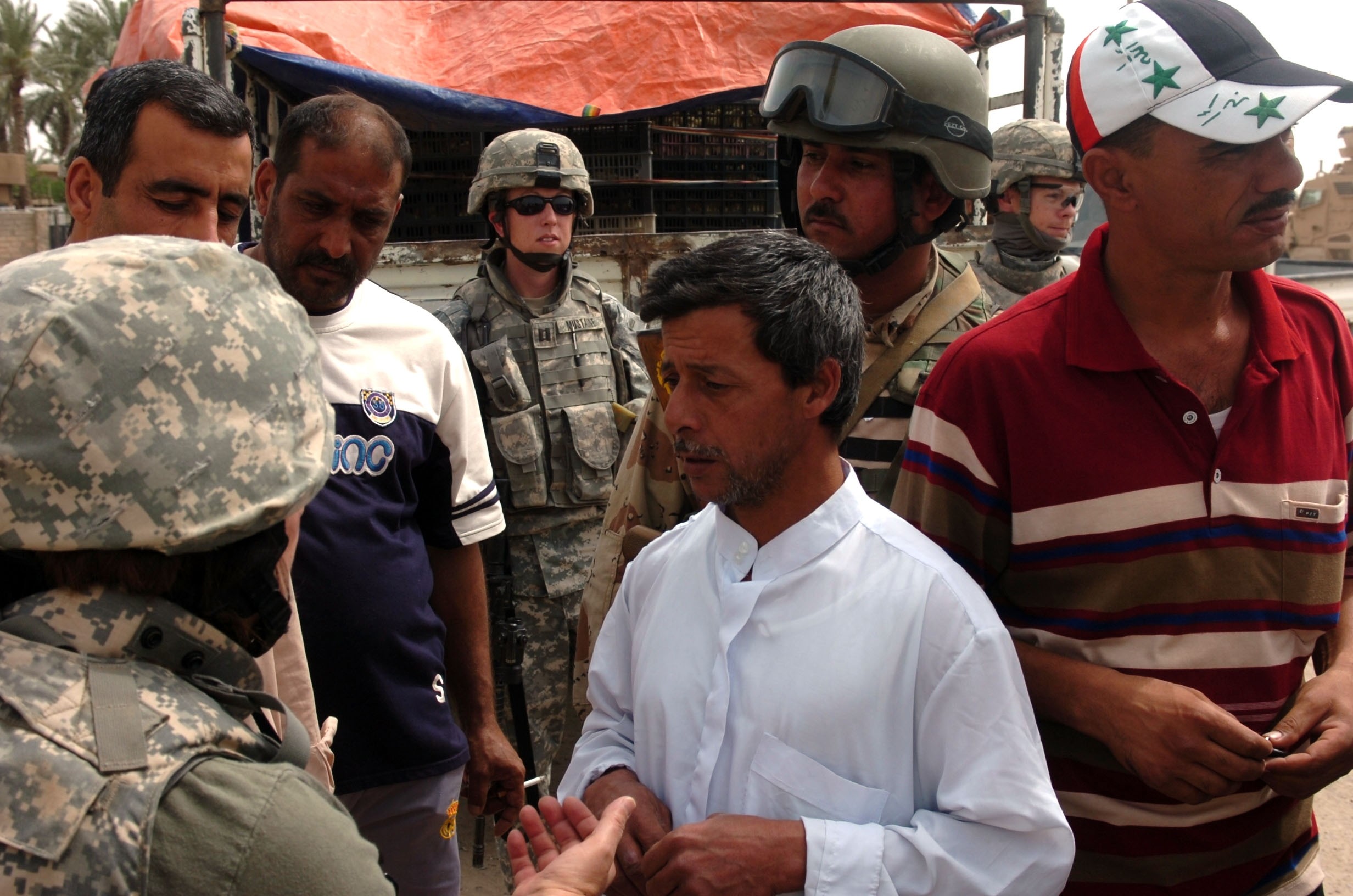
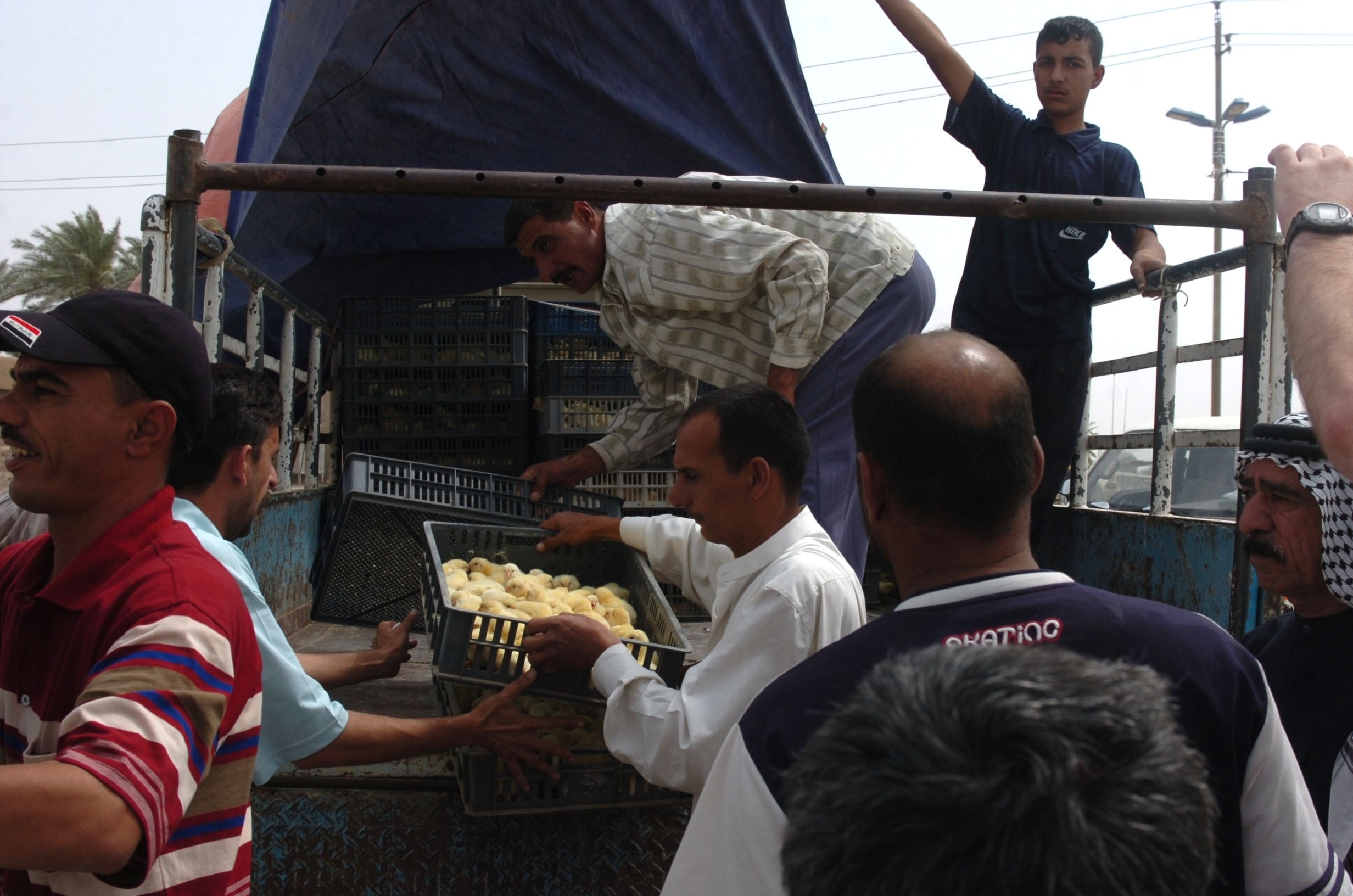
Social Sharing